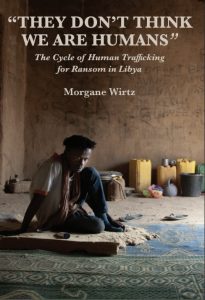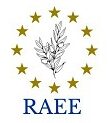“They don’t think we are humans” The Cycle of Human Trafficking for Ransom in Libya

In Libya, on the road to Europe, migrants and refugees are subjected to ‘human trafficking for ransom’. They are extorted, kidnapped, or sold and detained in trafficking camps, where they are forced to pay ransoms for their release. The conditions in these detention facilities are horrific, characterized by a lack of food, water, and proper hygiene. Migrants and refugees report regular beatings, torture, sexual violence, and killings. The torture is broadcast to the victims’ relatives to instill fear and expedite ransom payments. By exploring the concept of the ‘human trafficking cycle’, this study seeks to explain the persistence of these human rights violations reported by survivors on the southwestern and southeastern routes of Libya between 2016 and 2021. The cycle comprises various elements, irregularity, insecurity, discrimination, commodification, exploitation, and vulnerability, that trap victims in a continuous cycle of abuse. This ethnographic research is based on 160 interviews conducted between 2019 and 2022, primarily in Tunisia, Niger, and Sudan. The interviews include migrants, refugees, former smugglers, and experts, providing a comprehensive perspective on human trafficking for ransom, taking the viewpoint of survivors. The study is committed to addressing migration as a critical human rights issue.
Author: Morgane Wirtz
Year: 2025
Language: English
Publisher: Langaa, Bamenda
ISBN:
Pages:446
Cite as: Wirtz, M. (2025). “They don’t think we are humans”. The Cycle of Human Trafficking for Ransom in Libya. Bamenda, Cameroon: Langaa RPCIG
Book Chapters
- Prologue: Genesis of a thesis
- Chapter 1: Explaining Human Trafficking for Ransom: A Theoretical Framework
- Chapter 2: Explaining Human Trafficking for Ransom: A Theoretical Framework
- Chapter 3: The Story Behind the Findings: Methodology, Ethical and Emotional Challenges
- Chapter 4: The Situation of Human Trafficking for Ransom in the Literature
- Chapter 5: Slavery, War and Criminalisation: A Context of Human Trafficking
- Chapter 6: Routes, Hubs and Prisons: Mapping Migration in Libya
- Chapter 7:The Warehouses: At the Heart of Human Trafficking for Ransom in Libya
- Chapter 8: Official Detention Centers in Libya and their Link to the Human Trafficking Cycle
- Chapter 9: Sexual Violence on Migratory Paths in and Towards Libya
- Chapter 10: On the Move’ in the Region of Libya during COVID-19
- Chapter 11: Discussion and Conclusion: The Cycle of Human Trafficking for Ransom in Libya
- Annexes: Annex 1: Interview Topic List
Annex 2: Information Letter for Interviewees
Annex 3: Consent Form
Annex 4: Relationship Between Labels and Research Questions
Annex 5: List of Duplicated Work per Chapter
Annex 6: Publications
